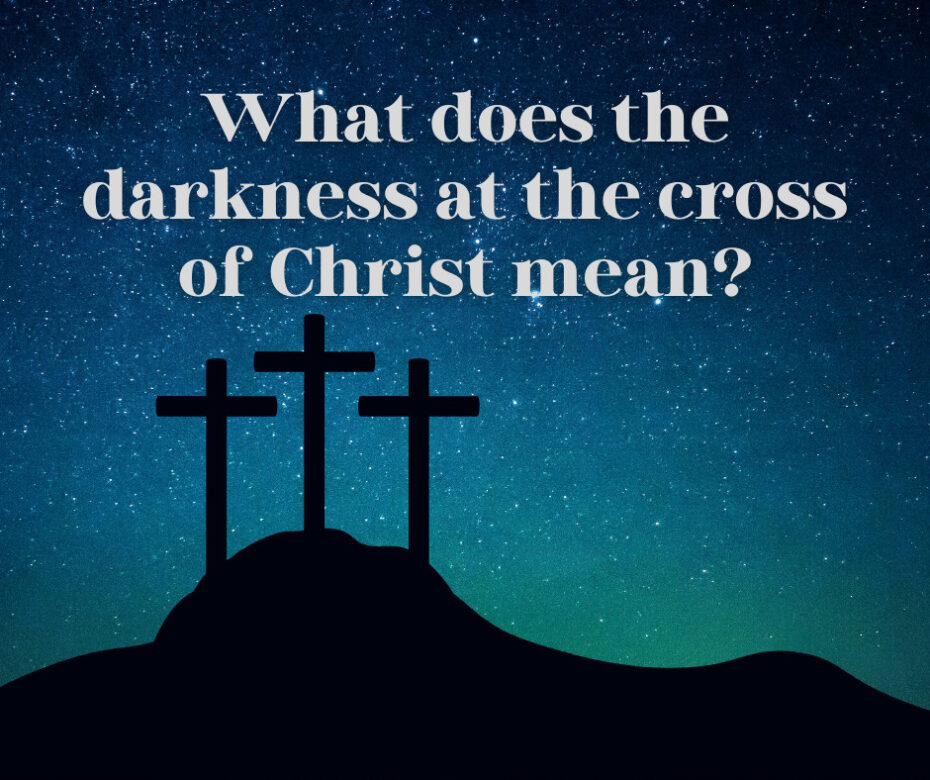Now when the sixth hour had come, there was darkness over the whole land until the ninth hour.
Apocalypto is truly a guy movie. The hero is about to be sacrificed by a Mayan priest at a temple. The people believe their crops are failing because the gods are angry with them. Just as the hero is about to be killed, there is a solar eclipse, and the land goes dark for one minute or so. The priest explains that this is a sign from the gods. They are no longer angry; the crops of the people will be bountiful. There is no further need for human sacrifice, and the hero’s life is spared.
At the cross of the Lord, there is a much more spectacular event. It is not a solar eclipse. The land is miraculously darkened for three hours: “Now when the sixth hour had come, there was darkness over the whole land until the ninth hour” (Mark 15:33). It was dark from noon to 3 pm.
The Mayan priest in the movie is mistaken about the significance of the momentary darkness. But clearly there is significance to the darkness at the cross of the Lord. But what is it?
Mark wants us to ask that question. There is a pagan at the foot of the cross who does so, and Mark commends him for it. This is true even though this man does not understand the full significance of what he observes. He does, however, interpret the darkness and comes to some right conclusions about what he sees.
This man is a Roman centurion. He notices how Jesus is in control on the cross as He dies. He also obviously notices that the sun has quit giving its light for three hours in the middle of the day. This leads him to declare, “‘Truly this Man was the Son of God!’” (Mark 15:39).
Clearly, he did not understand the doctrine of the Trinity. He was a man who believed in many different gods. But in light of the fact that he makes this statement when the Jewish religious leaders had condemned the Lord to death for being a blasphemer, this pagan man is given insight into the identity of the Man on the cross, something which the Jews should have more readily seen. His interpretation of the darkness led him to that insight.
What did he mean by his statement, and how did he arrive at it? The emperor of Rome was called the son of god by Roman soldiers. The emperor was acting in the place of the gods upon the earth. He provided the people with what they needed. He did the work of the gods. When he died, he would join the pantheon of the gods.
As a Roman soldier, the centurion would also have been an equal opportunity pagan worshipper. He would have adopted the religious practices of the people in the area where he was stationed. Gods were seen as having power in whatever location they belonged to and where the people worshipped them. In the case of this centurion, he was in Judea, and the temple of the Jewish God was within his sight. He would have believed that this God had power in that area.
Like the Mayan people in the movie, unusual heavenly signs would have had been seen as a sign from the gods in that region. In this case, the centurion would have interpreted the darkness as meaning that the Jewish God was angry with what was happening when Jesus died. Jesus was innocent. This would have been especially evident to him when he observed the way in which Jesus died. Every other man he had seen crucified did not die the way Jesus died.
It was clear to the centurion that Jesus was doing the work of the Jewish God. This God would have been pleased with the Man on the cross, and not the Jews that killed Him. It is this centurion that makes the last statement about Christ on the cross. Even with his limited (in fact non-existent) theological knowledge about the Trinity, he makes a true statement. He states even more than he knows. It is a rebuke to the unbelief of the nation. The darkness at the cross played a large role in his coming to the conclusion he does.
That encourages us to look at the cross and ask what it means. Mark wants the reader to do that. As Christians we have more insight into the identity of Christ than the centurion had. How should we interpret it? In part 2, I would like to first address what I think are incorrect ways to see the darkness. This is true even though they are common views and have some theological truth in them. Finally, I would like to suggest what the Bible points to when it says that the land fell dark for three hours on the day Christ died.


